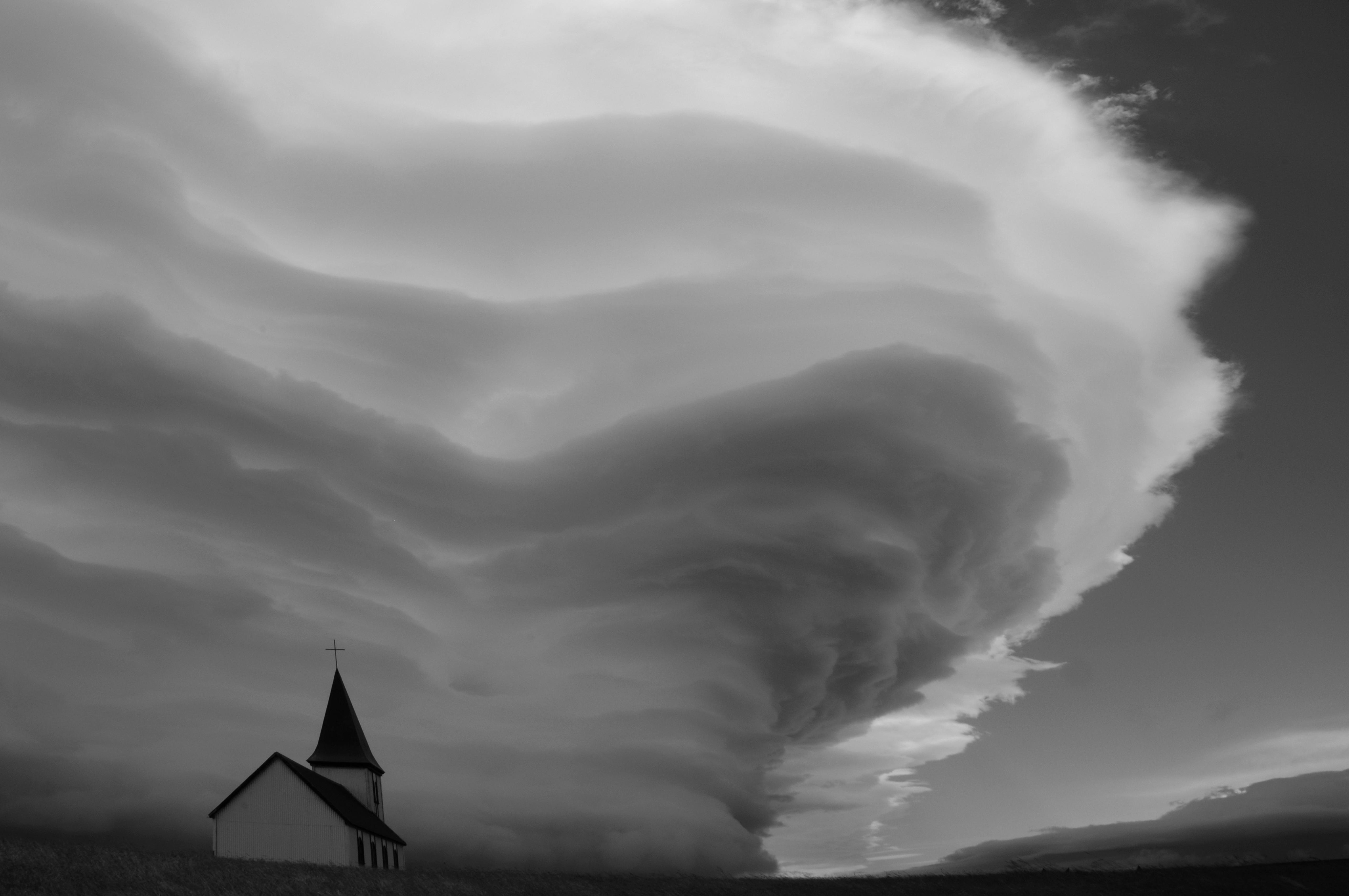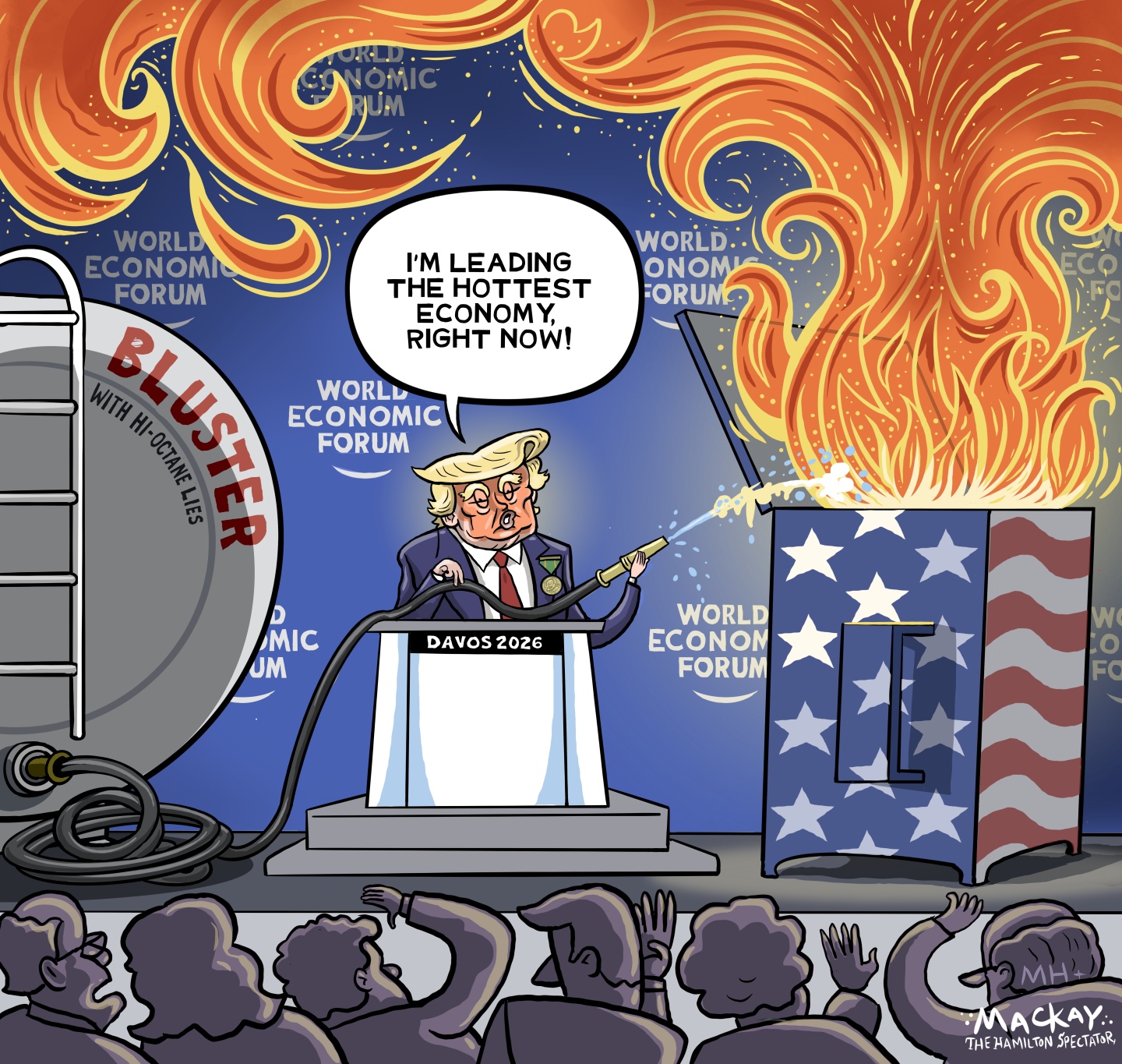The dark pessimism of American Christians
It's driven by the inquisitorial zeal of secular progressives


In her new book, It's Dangerous to Believe: Religious Freedom and Its Enemies, Mary Eberstadt finds a dark pessimism settling over many American Christians when they contemplate the future. They perceive a foreboding shift in public attitude. Once there seemed to be a broad and liberal respect for the free exercise of religion, even in public life. But now, the very cultural forces promoting tolerance and diversity treat Christians and their institutions with broad suspicion, and demand absolute conformity with an egalitarian ethos that has only recently even announced its own existence.
Believers see the recent battles over religious liberty in the courts and in public opinion as a desire to purge orthodox Christian views, particularly about sex and the two sexes, from the public-facing institutions that they have built: their schools, hospitals, and adoption agencies. Instead of their First Amendment right to free exercise of religion, Christians are being offered, with a great deal of bitterness, mere "freedom of worship," narrowly defined to thinking your own thoughts in your head and participating in ceremonies behind closed doors.
Eberstadt documents in exhaustive detail this widespread social urge to rob Christians of their livelihoods and their good names, merely for believing what their churches have always taught, and acting on those beliefs. This is not just a handful of bakers who refused to make gay wedding cakes. There was the U.S. Marine Monica Sterling, who was given a dishonorable discharge for posting the Biblical verse "No weapon shall prosper against me" on her own computer, which a military judge said "could be interpreted as combative." Or the mayor of Houston, who demanded that pastors turn over their sermons to her for inspection. Religious colleges are faced with challenges to their accreditation. Charity groups and adoption agencies are subjected to continual and costly campaigns of legal assault for acting in accordance with the tenets of their religion. Even in the last few weeks since Eberstadt's book has been published, Catholic hospitals, which service some of the poorest areas in the country, are being portrayed as an alien and malignant force as the ACLU sues them for not performing abortions.
The Week
Escape your echo chamber. Get the facts behind the news, plus analysis from multiple perspectives.

Sign up for The Week's Free Newsletters
From our morning news briefing to a weekly Good News Newsletter, get the best of The Week delivered directly to your inbox.
From our morning news briefing to a weekly Good News Newsletter, get the best of The Week delivered directly to your inbox.
Eberstadt, in a neat series of chapters, contrasts the self-descriptions of progressives and secularists with their actions. They believe themselves champions of civil rights, while circumscribing the freedoms of fellow citizens. They imagine themselves tolerant, while prosecuting their cultural enemies with the zeal of inquisitors. They make blacklists and call themselves open-minded.
But what is most interesting about this book is that Eberstadt proposes novel ways of understanding what is really at work in this phenomenon. On the one hand, this pattern of fear and light hysteria about religious people has a familiarity to it. The sharing of lurid and unrepresentative portrayals of religious people — think documentaries like Jesus Camp — or the fear that Christians present a unique threat for corrupting the government — the theocracy trend of the last decade — or that they are uniquely dangerous to children and minors — the suspicion of homeschoolers and Christians as child abusers — show all the signs of being a classic moral panic. These are the same kinds of accusations that in earlier ages were hurled at suspected witches, or at suspected Communists, or that fueled the fear of Satanists at daycare centers. Eberstadt suggests that more people would recognize it was a moral panic if it were aimed at any other religious or ethnic group. Because it is a moral panic, many people now participating will be embarrassed about it in the future.
If Eberstadt is right that this is a moral panic, that would be a considerable relief for the orthodox Christians who are reading her book. A moral panic tends to be a moral fad, and to burn itself out in a decade or two. Although some, like the witch trials, can consist of recurring panics over centuries.
But I wonder if Eberstadt's moral panic analogy doesn't conflict with the other novel suggestion in her book, that the post-sexual revolution ethics and anthropology that progressives are championing in the culture war is becoming a religion itself. She writes:
A free daily email with the biggest news stories of the day – and the best features from TheWeek.com
What's unfolding today is not a drama in which secularist progressivism is slowly but surely eclipsing antiquated religious faith at last, but a contest of competing creeds, and competing first principles. Only when we acknowledge that truth can we see that there is only one way out of this cantankerous, riven place. [It's Dangerous to Believe: Religious Freedom and Its Enemies]
Eberstadt argues that the way to end the moral panic about Christians and their institutions is for the two camps in the culture wars to acknowledge their differences and then agree to disagree.
But I can't help but wonder if the analogy that is more appropriate to our times is to the English Reformation. There, a new rising faith, led by Henry VIII and his daughter Queen Elizabeth I, confronted an institutionally powerful set of church institutes. There were many elements of moral panic around this conflict, particularly the fear of subversive Jesuits sent from the Continent to destroy England's state power and ruin the morals of her people.
But this wasn't a moral panic that just subsided. The new faith was part of a state-building and state-reforming project, and that meant the continued prosecution of the old one for centuries. Instituting the new faith meant crushing those institutions, robbing them of their wealth, and taking over their social functions for the new faith. Driving the old faith underground made Catholics lest trustful of the state, and in turn obedient citizens became more distrusting of them. English anti-Catholicism meant the banning of Catholics from many vocations, especially those in public life. And these prejudices endured long after many Englishmen stopped believing in Protestantism. Three quarters of a century after Catholic emancipation, Liberal Parliamentarians like H.H. Asquith contemplated arresting Catholics for wearing Eucharistic vestments in public.
The analogy to the English Reformation just contemplates the natural and historic affinities. But what if the zeal that Eberstadt uncovers in her book is motivated by something deeper? Sometimes one senses that the new progressive ethic has an uneasy conscience. And it makes you wonder if the legal, social, and moral wrath it seeks to inflict on believers isn't really aimed at something within progressives themselves. There are some fires that never burn out.
Michael Brendan Dougherty is senior correspondent at TheWeek.com. He is the founder and editor of The Slurve, a newsletter about baseball. His work has appeared in The New York Times Magazine, ESPN Magazine, Slate and The American Conservative.
-
 Political cartoons for January 25
Political cartoons for January 25Cartoons Sunday's political cartoons include a hot economy, A.I. wisdom, and more
-
 Le Pen back in the dock: the trial that’s shaking France
Le Pen back in the dock: the trial that’s shaking FranceIn the Spotlight Appealing her four-year conviction for embezzlement, the Rassemblement National leader faces an uncertain political future, whatever the result
-
 The doctors’ strikes
The doctors’ strikesThe Explainer Resident doctors working for NHS England are currently voting on whether to go out on strike again this year
